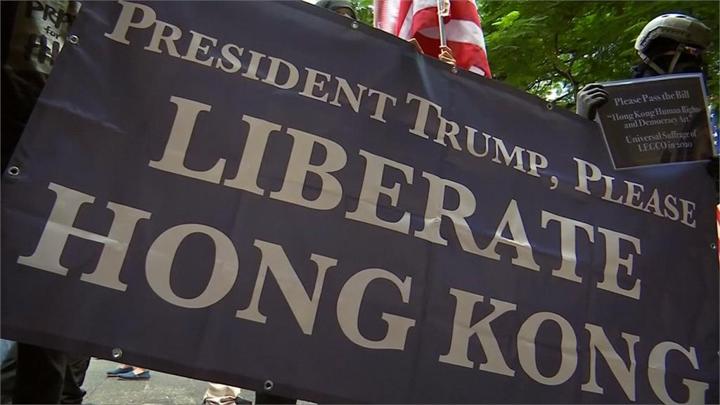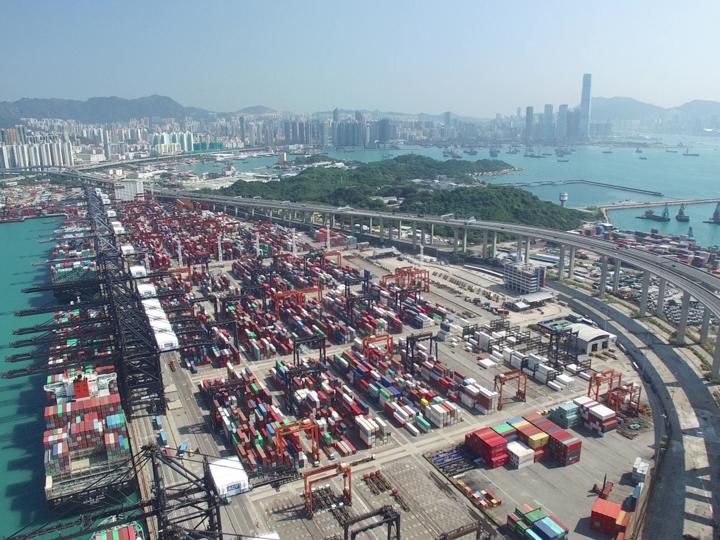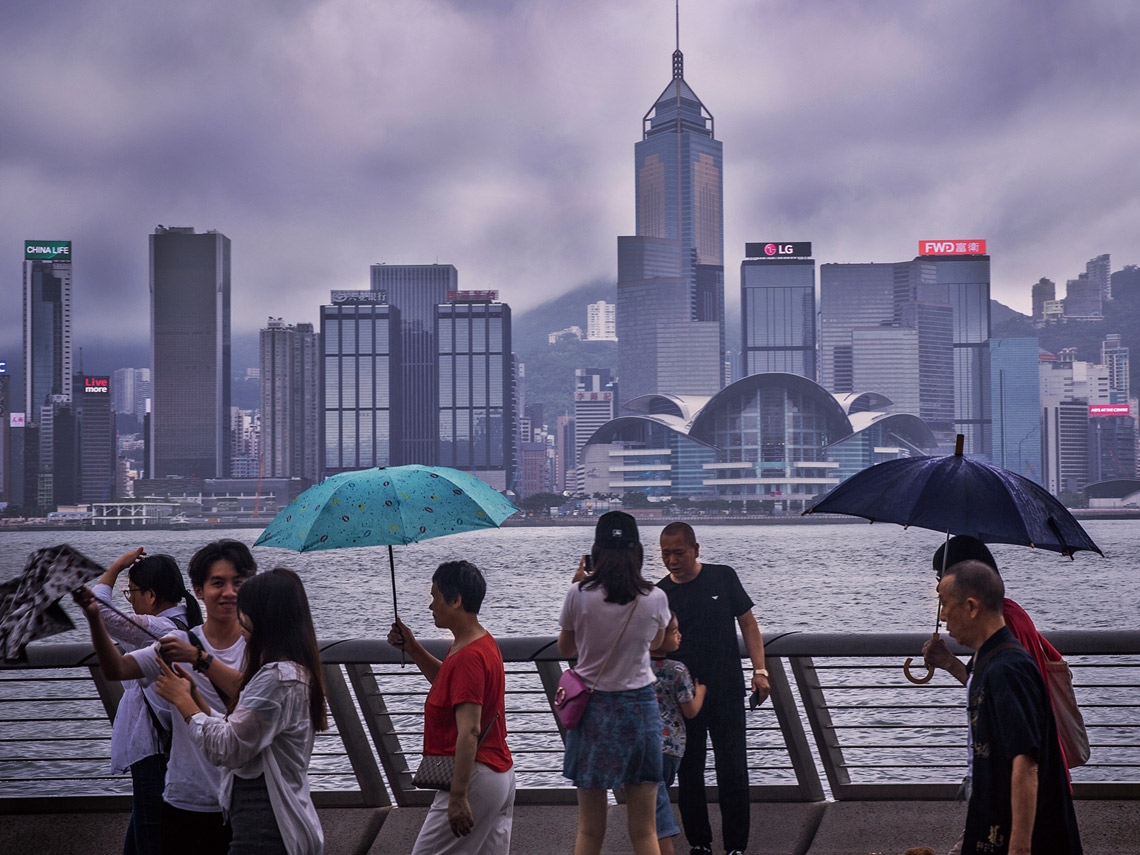When Washington threatened last month to revoke Hong Kong’s preferential trade and export treatment, Beijing chose to shrug off the warning. Chinese state media even went so far as to call the talk of sanctions by US President Donald Trump and State Secretary Mike Pompeo “mere bluster” and “more empty bark than bite.”
Thus the announcement by the US State and Commerce Departments this Monday could be a shock to Beijing, when the US is determined to stop recognizing Hong Kong as a separate customs territory and expedite the process to pare down the trade privileges accorded to the city.
The US government’s “bazooka” approach to curtailing the export of defense and dual-use solutions – those with both commercial and military applications – to Hong Kong could have upset Beijing’s strategy. The ban came before the Chinese parliament could give its pro forma approval of a national security law for the city, shattering Beijing’s plan to thrust the law upon the city before the West can orchestrate any concrete responses.
Pompeo said when announcing the latest export restrictions that the US could no longer distinguish between the export of controlled items to Hong Kong or to mainland China, as the Beijing-decreed security law loomed large.
The US Commerce Department also said it would suspend “preferential treatment to Hong Kong over mainland China, including the territory’s exclusive export licence exceptions,” and further actions to rescind other special policies would follow.
In a short statement that appears to have been drafted in haste, Beijing has vowed to retaliate but stopped short of any specific countermeasures. Chinese state media has also chosen to ignore the latest US ban, as newspapers and websites on the mainland are told by the party’s propaganda department to play up the virtues and legality of the sweeping law, whose enactment has bypassed Hong Kong’s own legislature. Hong Kong’s government has not issued a formal statement regarding the de facto technology embargo.

Pedestrians seek cover amid a downpour hitting Hong Kong’s Victoria Harbor. The US has moved to strip the territory of favorable trade and export treatment. Photo: Facebook
The new export ban is, nonetheless, unlikely to deal a crushing blow to Hong Kong’s exports and its economy, at least according to some analysts and officials.
Local papers noted in op-eds on Tuesday that Hong Kong’s lackluster progress to emerge as a new tech center to rival Shenzhen or even San Francisco has in turn helped it shed its reliance on key US know-how, and that rumors like a subsequent “cabotage” banning the shipping of any products made with US ingenuity such as iPhones were mere fear-mongering.
Still, it is said that the Chinese military used to run shell companies in Hong Kong to procure sensitive products and technology from overseas and transfer them back to the mainland. But Hong Kong’s Chief Executive Carrie Lam stressed during a press briefing Tuesday morning that the city had “stringent measures applying to all local entities” to prevent unauthorized transfers or intellectual property infringement, when refuting Pompeo’s accusations about such transfers.
OCBC Wing Hang Bank chief economist Carie Li said some of the city’s tech firms and startups could bear the brunt of the immediate impact, but many mainland Chinese enterprises that used to rely on Hong Kong to source cutting-edge technology and components may be equally affected.
She also said the total value of such exports from the US to Hong Kong was indeed “minuscule.”
Reuters cited the US Commerce Department as saying that in 2018, US$432.7 million worth of US exports subject to export control – mostly encryption, software and technology – were shipped to Hong Kong under a special exception granted by the Bureau of Industry and Security that was never applicable to mainland China.
In 2019, the State Department approved approximately US$2.4 million worth of controlled defense articles and services to be delivered to buyers in Hong Kong, but only about US$1.4 million worth was actually shipped.
By comparison, Hong Kong has been the largest single source of trade surplus for the US for the 10th year running, with last year’s stood at US$26 billion, and accumulatively US$310 billion between 2010 and 2019.

An overview of Hong Kong’s Kwai Chung container port. The city has been the largest source of trade surplus for the US for more than 10 years. Photo: Xinhua
Bernard Chan, Hong Kong’s Undersecretary for Commerce and Economic Development, also told reporters that while the city could encounter “obstacles” when furthering its trade with the US, the 1,300-plus American companies operating in the Asian financial hub would be hit the most by the US’s uncalled-for ban. Chan said the impact would depend on the export control measures eventually taken by the US government and in the meantime various IT stakeholders had long been ordering equipment and technology from around the world.
He added that being the world’s third-largest market for US foreign exchange transactions, Hong Kong would continue to stand on a firm fiscal ground and the “contagion of US ban” would unlikely spread into the financial sector.
However, Charles Mok, a lawmaker representing the city’s IT sector, said the move had already caused much trepidation in the tech sector.
“The US may adopt an all-encompassing definition of what can be regarded as a piece of dual-use technology and when information security products and chip and integrated circuit designs are covered by the ban, then the business of local telecoms carriers, the teaching and research at local universities as well as the operation of R&D centers and data centers will all be crippled,” said Mok, also a founding chairman of the Internet Society Hong Kong Chapter.
He has called on the US to adjust its policy to allow leeway for the export of necessary encryption products to Hong Kong to help safeguard the system integrity of the city’s key network infrastructure as well as the privacy of users.
























